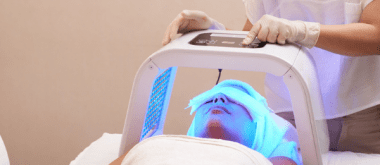Hormone replacement therapy is a treatment that may help to improve menopause symptoms. Timing the administration of hormone replacement therapy might prove critical to how effective it is.
Menopause Overview
Medical professionals consider menopause a natural life stage more than a health condition. This event typically impacts a woman in her late 40s or early 50s and signals the point at which her reproductive organs rapidly diminish production and secretion of key sexual hormones like estrogen and progesterone. These changes ultimately lead to a cessation of menstrual cycles and an inability to bear children any further.
Additionally, afflicted subjects might experience a wide array of untoward physical and mental manifestations. Such symptoms include but are not necessarily limited to hot flashes, increased sweating, insomnia, vaginal dryness, painful intercourse, diminished libido, skin problems, mood alterations, and cognitive function disturbances like memory loss and concentration difficulties.
Menopause Treatment
Specific therapeutic protocols healthcare professionals administer will often depend upon the subject and the severity of symptoms these individual experiences. That said, women have found success easing menopausal manifestations by employing remedial endeavors such as antidepressants, sleeping agents and other medications. Certain subjects have found relative success employing natural methods like altering their diet or sleeping in cooler and darker environments.
Hormone Replacement Therapy

Many individuals who have received this treatment witness a reduction in menopausal-related symptoms like night sweats, hot flashes and insomnia. Furthermore, HRT is also thought to reduce a subject’s likelihood of experiencing potentially more serious menopausal-related issues such as osteoporosis and heart disease.
Despite HRT’s efficacy in certain instances, this initiative also comes with specific but serious health risks. The undertaking has been linked to an increased risk of developing malignancies like breast and various reproductive system cancers. Moreover, some individuals who have been administered hormone therapy experienced blood clots.
Chronopharmacology
Due to the potential risks, some menopausal subjects, especially those with family histories of cancer or vascular issues, express reluctance to undergo HRT. That said, recent research suggests that the timing of hormone replacement administration may significantly reduce the chances of experiencing some of these risks.
The Study
Beginning in the 1990s and lasting until 2001, a team of British scientists initiated what came to be known as the “Million Women Study.” Specifically, investigators examined the link between HRT and breast cancer development. Women ranging in age from 50 to 64 were studied.
The results were astounding. Researchers found that subjects who began HRT around the time when menopausal manifestations commenced had a much greater risk of developing breast cancer while individuals who refrained from employing such therapy for five or more years witnessed far less risk.
Scientists caution that, though the findings are telling, the ultimate risk of developing breast or any other form of cancer, does not skyrocket simply by receiving HRT. The only firm correlation drawn was that the strategic timing of such therapy administered might diminish the risk.
Therefore, the final decision rests in the hands of women and their physicians after weighing the pros and cons and identifying any underlying risk factors.





